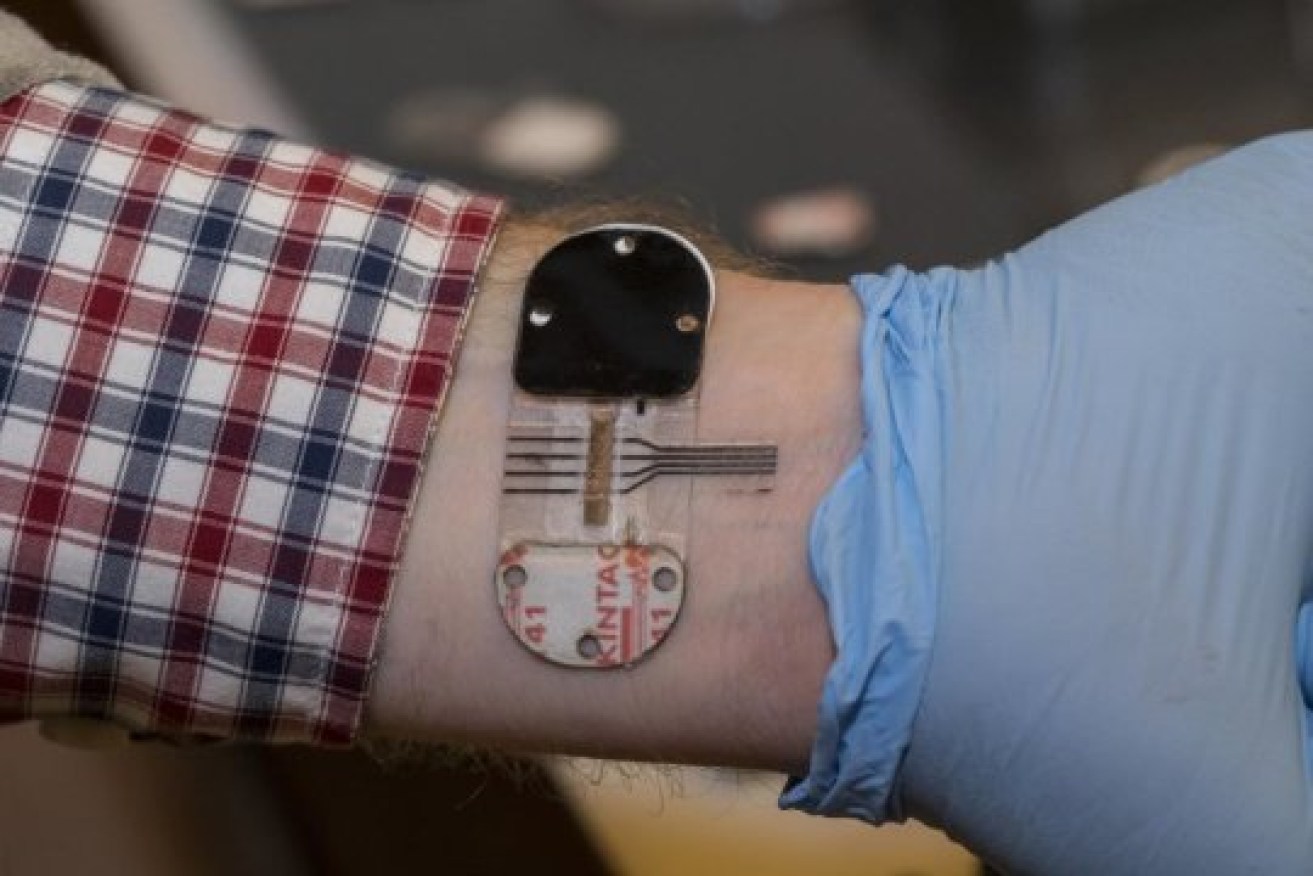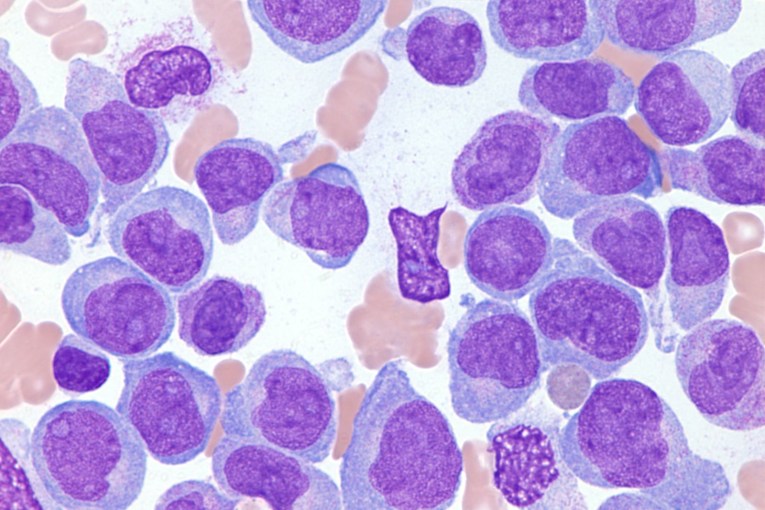What your sweat says about your health

The new 'sweat sensor' can track your health without the need for a blood test. University of Cincinnati
Imagine never needing a blood test again. Thanks to technology that tells doctors all they need to know from your sweat, that scenario could be a step closer.
US researchers from the University of Cincinnati claim to have developed a world-first wearable sensor that could continuously monitor a person’s health through their sweat. The size of a Band-Aid, the device features tiny, portable sensors that could help doctors to track illness, dehydration or monitor medicines over time.
The study – published in Nature Biotechnology – also looked at saliva, tears and interstitial fluid, but concluded that sweat holds the most promise. The researchers say it provides similar information to blood – except non-invasively and for hours.
Sweaty situations
The main purpose of sweating is to control body temperature through evaporative heat loss, accredited exercise physiologist Yujin Lim said.
Some people sweat more than others in response to exercise or environmental factors. However, current evidence suggests that this isn’t associated with an increased risk of medical conditions, Mr Lim, the director of Optimal Health Exercise Physiology Melbourne, said.
People who trained regularly, especially doing endurance activities such as running and cycling, could sweat sooner and more profusely than untrained people, Mr Lim said. They generated more heat and were more efficient at regulating their body temperature.

Regular exercise helps regulate body temperature. Photo: Getty
“Some people have hyperhidrosis, which is excessive sweating.”
This could be caused by obesity, diabetes, thyroid problems, or other illnesses, but often has no known cause, Mr Lim said.
He added that heavier people have to work harder to perform a given activity than someone with a lower body weight, which makes them sweat more.
On the other end of the spectrum is reduced sweating, or hypohydrosis. “Again, this is caused by certain conditions rather than predisposing you to conditions,” Mr Lim said.
He noted that a person can produce up to two litres of sweat an hour.
Sweat’s secrets unveiled
Sweat comes from the interstitial fluid, which is found between all our cells, said Nigel Taylor, a retired associate professor of thermal physiology from the University of Wollongong. “A 70-kilogram adult has about 13 litres,” he said
Interstitial fluid comes from plasma – blood’s colourless liquid component. “The concentrations of stuff contained in the plasma and interstitial fluids are very similar.”
“If stuff can pass through the microscopic gaps that separate the cells of the blood vessel walls, then it will appear in both fluids in about the same concentration,” Mr Taylor said.
He noted that this was the logic for using sweat to measure substances found in the blood. However, as sweat moves along the sweat ducts, some substances are reabsorbed. How much is reabsorbed depends on flow – high flows mean less reabsorption and more concentrated sweat.
The new device developed in the US stimulates sweat, even while at rest. But because of this relationship between flow rate and reabsorption, Mr Taylor said he was not convinced that a device that artificially stimulated sweating could claim to be as accurate as blood tests for measuring certain substances.
He added that sweat was already used to test for cystic fibrosis, and “that is valid and well established”.
Concerned about uncontrollable sweating?
As many as three in 100 Australians have excessive sweating with no apparent cause. This might affect only some body areas – often the armpits, hands, feet or face – or the entire body.
Excessive sweating doesn’t affect your health but can be embarrassing or distressing. It can also cause discomfort and lead to skin conditions such as tinea and eczema. Try to keep the affected area as clean and dry as possible. Absorbent pads can help stop the sweat from soaking through to your clothes.
If hyperhidrosis is a concern, see your doctor to rule out a medical cause. Various treatments are available, including medicines such as prescription antiperspirants, nerve-blocking medicines, antidepressants or botox (which is injected around the sweat glands to reduce the amount of sweat they produce).
Other treatments include iontophoresis – where a mild electrical current is delivered through water to affected areas. Surgery to remove the sweat glands or sever their nerves is a last resort.
If hyperhidrosis makes you upset or embarrassed, talking to a counsellor can help.








